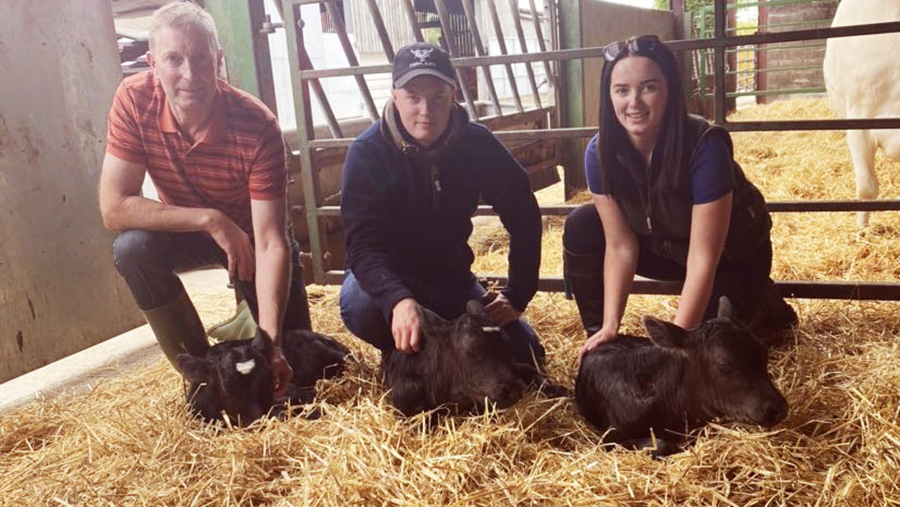Triplet Wagyu calves born against the odds

A dairy farm in North Yorkshire has welcomed a rare set of triplet Wagyu beef calves – at odds of 1 in 105,000.
The heifer and two bull calves were born on 18 July at Carr House Farm near Allerston, run by Chris Stockdale and his family.
See also: Q&A: Pneumonia in calves and how to combat it
Daughter Chloe explained that about 70% of the 170 Holstein Friesian milking herd is put to Wagyu genetics to maximise returns.
As well as the premium attached to Wagyu beef, the Stockdales chose the breed for its ease of calving.
Chloe said she discovered the calves in the morning after they were born unassisted during the night.
“I couldn’t believe it, so I went and played back the calving cameras to double check they were all from the same cow,” she said.
All three weighed about 35kg each and are strong and healthy.
Chloe explained calves are sold on to specialist rearers Hutton Cranswick at nearby Driffield when they reach two weeks old.
Both businesses are part of the 150 farmer-suppliers to Warrendale – the Yorkshire-based Wagyu beef marketing group.
The group was established in 2017 and the Stockdales were among the earlier members, joining two years ago, said Chloe.

Three healthy Wagyu calves with, from left, Chris, Tom and Chloe Stockdale
What is Wagyu beef?
Wagyu beef was originally a luxury meat produced only in Japan by Japanese Black, Brown, Polled or Shorthorn breeds.
The genetics conferred a soft fat with a low melting point, from an abnormally high proportion of monounsaturated fats and omega 3 and 6 oils.
The extremely high proportion of soft fat marbling meant diners experienced a melt-in-the-mouth sensation.
The eating experience, combined with tight supplies from the small gene pool and longer carcass hanging times, allowed producers to charge £500/kg.
But the high values attracted cattle breeders worldwide, who exploited advances in gene-mapping to isolate the Wagyu trait.
A wide range of crossbred cattle now carry the Wagyu gene and prices have reduced.
